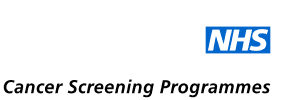NHS Cancer Screening Programmes

NHS Cancer Screening Programmes |
 |
|
|
The cancer screening programmes in England are nationally coordinated. NHS Breast Screening Programme (NHSBSP) There is no organised screening programme for prostate cancer but an informed choice programme, Prostate Cancer Risk Management has been introduced. |
Cervical screening |
||||||||
|
||||||||||